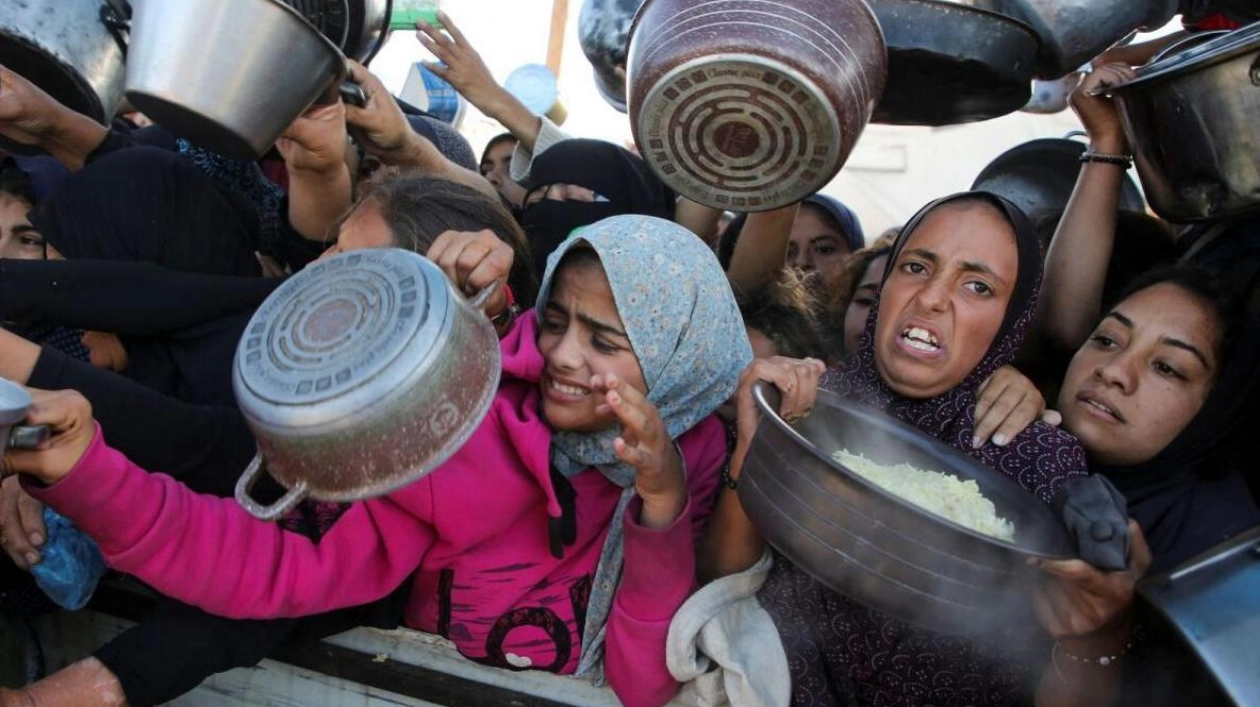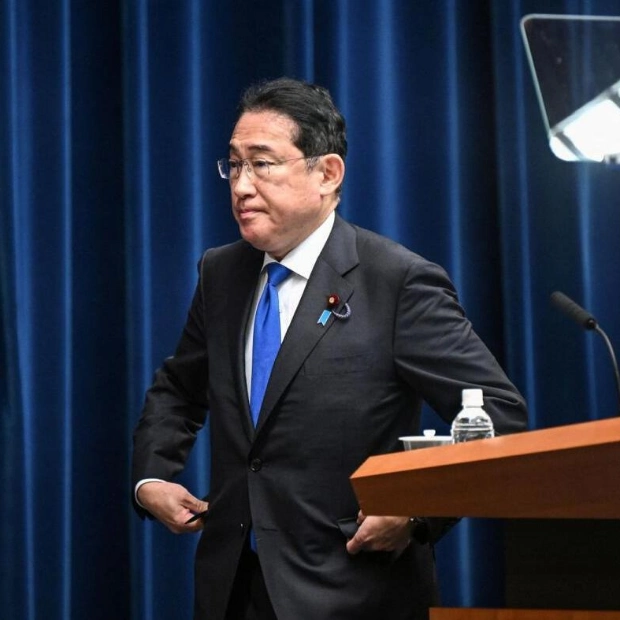Palestinians congregate to collect food prepared by a charitable kitchen, amidst a hunger crisis, in Khan Younis within the southern Gaza Strip on November 19, 2024. Photo: Reuters
The United States vetoed a UN Security Council motion on Wednesday to demand a ceasefire in Gaza, a move Washington argued would only strengthen Hamas. The resolution called for an 'immediate, unconditional, and permanent ceasefire' in the conflict between Israel and the Palestinian group, alongside the 'immediate and unconditional release of all hostages.' However, the phrasing infuriated Israel, with a senior US official cautioning before the vote that the resolution could 'only bolster Hamas, leaving it with no incentive to negotiate.' Israel's UN ambassador, Danny Danon, denounced the resolution as 'nothing short of a betrayal.'
'For us, there must be a connection between a ceasefire and the release of hostages,' stated Robert Wood, the deputy US ambassador to the United Nations. 'This has been our stance from the outset and remains so.' The war was ignited by Hamas's assault on Israel on October 7, 2023, a devastating cross-border raid that claimed 1,206 lives, predominantly civilians, according to an AFP compilation of Israeli official data. The health ministry in Hamas-controlled Gaza reported that the ensuing war had resulted in 43,985 fatalities, mostly civilians, figures the United Nations deems credible.
Of the 251 hostages taken during the October 7 attack, 97 remain in Gaza, including 34 whom the Israeli military claims are deceased. Nearly all of Gaza's 2.4 million inhabitants have been displaced by the war, which has precipitated a humanitarian disaster. Since the conflict's inception, the Security Council has struggled to present a unified front, with the United States employing its veto power multiple times, though Russia and China have also done so.
A US official claimed that 'China kept demanding 'stronger language',' and alleged that Russia had been 'manipulating' the countries pushing the latest resolution. The few resolutions the United States permitted to pass by abstaining fell short of calling for an unconditional and permanent ceasefire. In March, the council urged a temporary ceasefire during Ramadan, but this plea was disregarded by the warring factions. In June, the 15-member body endorsed a US resolution outlining a multi-stage ceasefire and hostage release plan, which ultimately failed to materialize.
'We regret that the Council could have included compromise language the UK proposed to bridge the existing gaps... With that language, this resolution should have been adopted,' Wood, the US envoy, remarked after the vote. Some diplomats are hopeful that following Donald Trump's November 5 election victory, President Joe Biden might be more adaptable in his remaining weeks in office. They recall December 2016 when then-president Barack Obama's second term was ending, and the council passed a resolution calling for an end to Israeli settlement construction in occupied territories, a first since 1979.
The United States did not use its veto then, breaking from its customary support for Israel on the contentious issue of settlements. The resolution vetoed on Wednesday demands 'safe and unimpeded entry of humanitarian aid on a large scale,' including in besieged northern Gaza, and condemns any attempt to starve the Palestinians. The Palestinian delegation at the United Nations contends that the text did not go far enough.
'Gaza's fate will haunt the world for generations,' warned ambassador Riyad Mansour. He asserted that the only course of action for the Security Council is to call for an immediate and unconditional ceasefire under Chapter 7 of the UN charter. This chapter permits the council to enforce its resolutions through measures such as sanctions, though the latest text did not reference this option.
Source link: https://www.khaleejtimes.com






